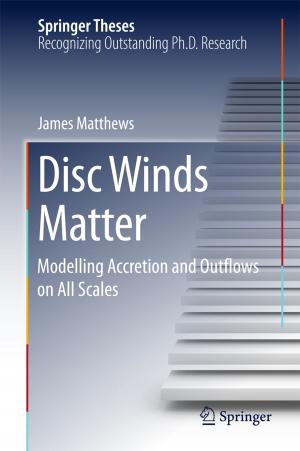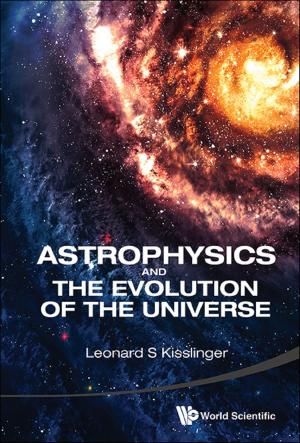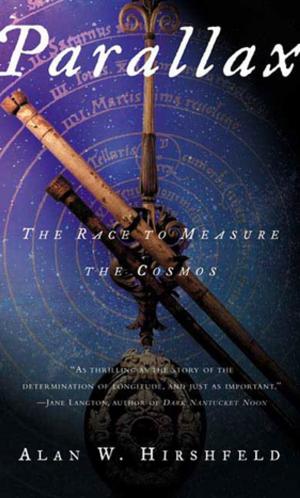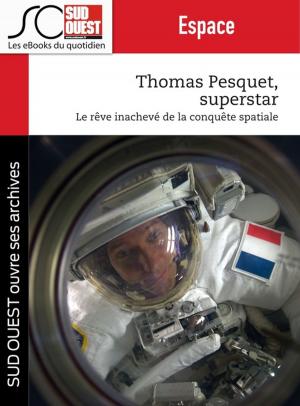The Pioneer Detectives
Did a distant spacecraft prove Einstein and Newton wrong?
Nonfiction, Science & Nature, Science, Physics, Astronomy, Astrophysics & Space Science| Author: | Konstantin Kakaes | ISBN: | 1230000161106 |
| Publisher: | The Millions | Publication: | August 21, 2013 |
| Imprint: | Language: | English |
| Author: | Konstantin Kakaes |
| ISBN: | 1230000161106 |
| Publisher: | The Millions |
| Publication: | August 21, 2013 |
| Imprint: | |
| Language: | English |
Explore one of the greatest scientific mysteries of our time, the Pioneer Anomaly: in the 1980s, NASA scientists detected an unknown force acting on the spacecraft Pioneer 10, the first man-made object to journey through the asteroid belt and study Jupiter, eventually leaving the solar system. No one seemed able to agree on a cause. (Dark matter? Tensor–vector–scalar gravity? Collisions with gravitons?) What did seem clear to those who became obsessed with it was that the Pioneer Anomaly had the potential to upend Einstein and Newton—to change everything we know about the universe.
With riveting prose and the precision of an expert, Konstantin Kakaes gives us a scientific police procedural, tracking the steps of those who sought to unravel this high-stakes enigma. His thrilling account draws on extensive interviews and archival research, following the story from the Anomaly’s initial discovery, through decades of tireless investigation, to its ultimate conclusion. “The Pioneer Detectives” is a definitive account not just of the Pioneer Anomaly but of how scientific knowledge gets made and unmade, with scientists sometimes putting their livelihoods on the line in pursuit of cosmic truth. Perfect for fans of John McPhee, Thomas Kuhn, and Ed McBain, this is also an immensely enjoyable story accessible to anyone who loves brilliant, fascinating long-form journalism.
* * *
ABOUT THE AUTHOR: Konstantin Kakaes is a Bernard L. Schwartz fellow at the New America Foundation, writing about science and technology, and is the former Mexico City bureau chief for The Economist. His work has been published in The Wall Street Journal, Foreign Policy, and The Washington Post and appears frequently in Slate. Before becoming a journalist, he studied physics at Harvard University.
Explore one of the greatest scientific mysteries of our time, the Pioneer Anomaly: in the 1980s, NASA scientists detected an unknown force acting on the spacecraft Pioneer 10, the first man-made object to journey through the asteroid belt and study Jupiter, eventually leaving the solar system. No one seemed able to agree on a cause. (Dark matter? Tensor–vector–scalar gravity? Collisions with gravitons?) What did seem clear to those who became obsessed with it was that the Pioneer Anomaly had the potential to upend Einstein and Newton—to change everything we know about the universe.
With riveting prose and the precision of an expert, Konstantin Kakaes gives us a scientific police procedural, tracking the steps of those who sought to unravel this high-stakes enigma. His thrilling account draws on extensive interviews and archival research, following the story from the Anomaly’s initial discovery, through decades of tireless investigation, to its ultimate conclusion. “The Pioneer Detectives” is a definitive account not just of the Pioneer Anomaly but of how scientific knowledge gets made and unmade, with scientists sometimes putting their livelihoods on the line in pursuit of cosmic truth. Perfect for fans of John McPhee, Thomas Kuhn, and Ed McBain, this is also an immensely enjoyable story accessible to anyone who loves brilliant, fascinating long-form journalism.
* * *
ABOUT THE AUTHOR: Konstantin Kakaes is a Bernard L. Schwartz fellow at the New America Foundation, writing about science and technology, and is the former Mexico City bureau chief for The Economist. His work has been published in The Wall Street Journal, Foreign Policy, and The Washington Post and appears frequently in Slate. Before becoming a journalist, he studied physics at Harvard University.















